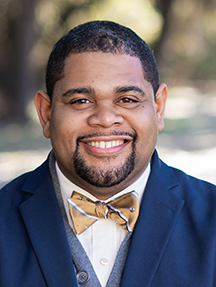 by Terrence Wilson, J.D. • Knowledge is Power • September 26, 2023 •
by Terrence Wilson, J.D. • Knowledge is Power • September 26, 2023 •
Education leaders across the U.S. South have been making news recently with further attempts to censor what students can learn and what teachers can teach. The most recent is an attack on Advanced Placement (AP) African American Studies. According to College Board that designs AP courses, this “interdisciplinary course reaches into a variety of fields – literature, the arts and humanities, political science, geography, and science – to explore the vital contributions and experiences of African Americans.”
Education leaders across the U.S. South have been making news recently with further attempts to censor what students can learn and what teachers can teach. The most recent is an attack on Advanced Placement (AP) African American Studies. According to the College Board that designs AP courses, this “interdisciplinary course reaches into a variety of fields – literature, the arts and humanities, political science, geography, and science – to explore the vital contributions and experiences of African Americans.”
The value of a course like this should be clear. However, leaders in the Florida Department of Education rejected the course in January and the Arkansas Department of Education decided to refuse to offer credit for students enrolled in the course 48 hours before school started. These decisions are problematic for a number of reasons.
First, this course has been developed and vetted over multiple years with input from over two dozen college and K-12 experts in the well-established field of African American Studies. While there are legitimate critiques of the College Board for how it handled criticism of the standards by watering down or removing topics like Black Lives Matter, mass incarceration, intersectionality, queer life and reparations, leaders should not overlook how important it is to have this course available for students.
This is particularly important for Black students as students taking AP classes impacts students positively (for example, students are more likely to enroll in college and do better once they get there). However Black students are underrepresented in AP courses. This reflects a larger trend that students of color, particularly Black and Latino students, are underrepresented in advanced coursework broadly.
Second, getting a high score on an AP test enables students to earn college credits while in high school. Several researchers have shown that this increases their chances of college success. These courses are so important that, even in the South, where public education has been systematically underfunded, states still subsidize funding for the AP course exam for students with limited economic resources or for all students taking the exams.
Taking all of this into consideration, the actions of education leaders across the South are meant to significantly diminish the opportunities of BIPOC students to attend and thrive in college.
Nevertheless, advocates should continue to push back. IDRA is promoting resources to help educators teach culturally-sustaining lessons even when these AP courses and related content have been banned (see IDRA’s We All Belong ~ School Resource Hub)
Additionally, communities are organizing, such as the Task Force for Teaching Our Own History in Florida, that will continue pushing to allow students to gain an understanding of Black history and an awareness of the resilience and brilliance of Black people.
The efforts of the political leaders will not succeed at whitewashing history and diminishing the value of African American Studies and Black history if students, parents, caregivers and communities stand together and demand that these courses be taught.
[© 2023, IDRA. This article originally appeared in the September 26, 2023, edition of Knowledge is Power by IDRA. Permission to reproduce this article is granted provided the article is reprinted in its entirety and proper credit is given to IDRA and the author.]


